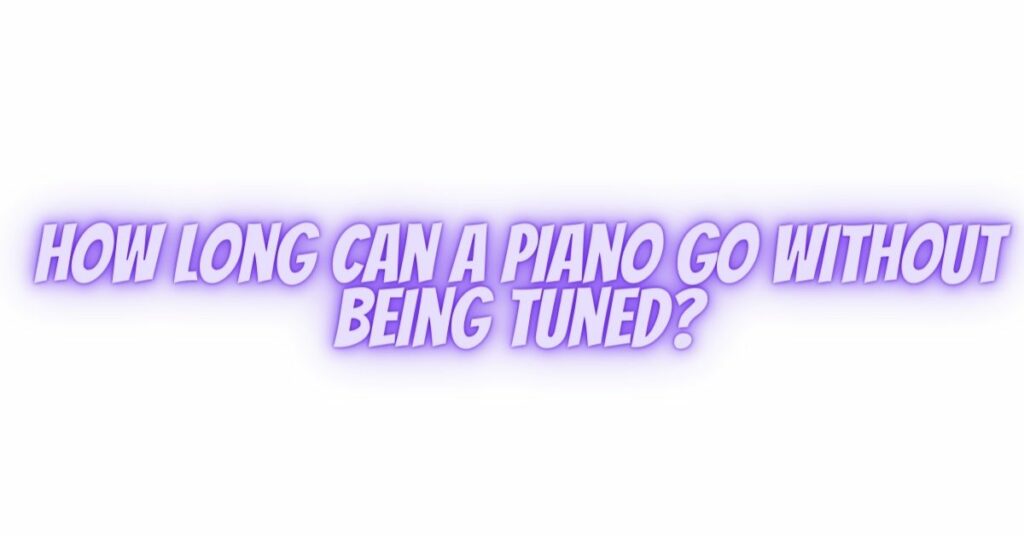Pianos are complex and sensitive instruments with thousands of individual parts, including strings, pins, and a soundboard. The tuning stability of a piano can be influenced by various factors, such as temperature, humidity, frequency of use, and the piano’s age. While it’s advisable to have your piano tuned regularly, there’s no fixed rule for how long a piano can go without tuning. In this comprehensive guide, we’ll explore the factors affecting piano tuning stability and provide guidelines for determining how often your piano should be tuned.
Factors Affecting Piano Tuning Stability
Several factors can influence how long a piano can go without being tuned:
1. Temperature and Humidity: Pianos are sensitive to changes in temperature and humidity. Fluctuations in these environmental conditions can cause the wood in the piano to expand and contract, affecting string tension and, subsequently, the piano’s tuning.
2. Frequency of Use: The more frequently a piano is played, the more it may require tuning. Playing the piano puts stress on the strings, causing them to stretch and change in pitch over time.
3. New or Restored Pianos: New pianos, as well as pianos that have undergone restoration or significant changes, may require more frequent tuning during the settling-in period. This is because the strings and soundboard are adjusting to their new conditions.
4. String Quality: The quality of the strings on your piano can impact its tuning stability. High-quality strings are less likely to go out of tune.
Guidelines for Piano Tuning
While there’s no hard-and-fast rule for how long a piano can go without being tuned, here are some general guidelines to help you determine how often you should schedule tuning:
- Regular Tuning Schedule: For most pianos, it’s recommended to have them tuned at least once or twice a year. This regular tuning schedule helps maintain the piano’s sound quality and keeps it in good playing condition.
- Environmental Factors: If your piano is exposed to significant changes in temperature and humidity, it may require more frequent tuning. Extreme fluctuations can necessitate tuning adjustments.
- Frequency of Use: If your piano is played regularly, it may require more frequent tuning. For professional pianists or institutions, quarterly or even monthly tunings might be necessary.
- New Pianos: New pianos, especially during the first few years, should be tuned more often to help the strings settle and adapt to their proper tension.
- Older Pianos: As pianos age, they can lose tuning stability. Older pianos may require more frequent tunings to keep them sounding their best.
- Auditory and Visual Cues: Pay attention to the sound and feel of your piano. If you notice a significant change in pitch or the presence of audible beats (waving or throbbing sounds when certain notes are played together), it’s time for tuning.
- Maintenance: Regular maintenance, including tuning and other adjustments, helps prolong your piano’s lifespan and maintains its sound quality. Neglecting tuning for extended periods can result in more significant issues that require costly repairs.
Consult a Professional
While these guidelines can provide a general idea of when your piano should be tuned, it’s essential to consult a professional piano tuner for comprehensive tuning and maintenance. Piano tuners have the training, expertise, and specialized tools to ensure that your piano is in its best condition.
Regular tuning not only maintains the piano’s sound quality but also helps detect and address other potential issues, such as loose or damaged parts. By following a regular tuning schedule and being attentive to the signs that your piano needs tuning, you can ensure that your instrument continues to produce beautiful music for years to come.


